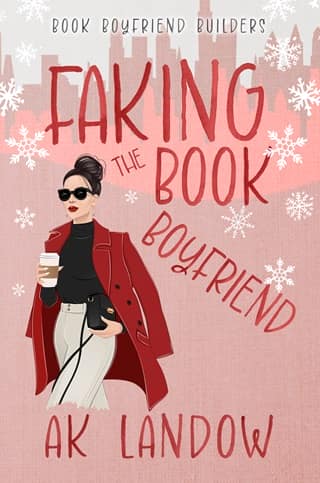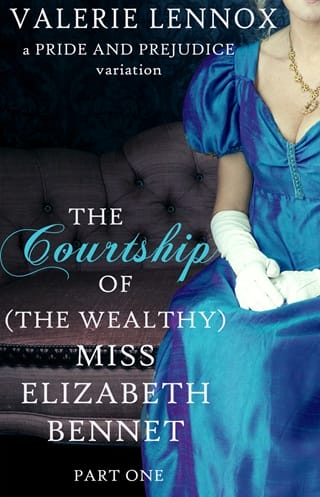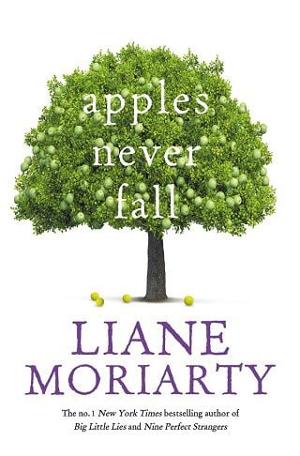Chapter 3
The Wind told me, before she vanished, that it was the change in Odium’s vessel that restored her voice. I wonder. Perhaps it is the new storm, making people begin to reconsider that the wind is not their enemy.
—From Knights of Wind and Truth , page 3
S hallan and Pattern left Testament to rest and crossed the wall at Lasting Integrity to meet with Adolin, Maya, and the Herald Kelek—who were speaking with a kind of spren that Kelek called a “seon.” She manifested as a hovering ball of light, roughly the size of a head, with an odd symbol at the center. Other than them, the wall top was empty today.
“You don’t remember?” Pattern asked softly as he and Shallan walked. “The events with Testament? I thought you did. I thought, with Veil gone …”
“Veil is not gone,” Shallan said. “She’s part of me, like she always was.”
“I … don’t understand.”
“It’s hard to explain,” Shallan said. “And … I’m not sure I’ve entirely figured it out. Healing is not an event, Pattern, but a process. I’ve incorporated Veil into myself, so she doesn’t take control any longer, but she’s not gone . Veil is me, but Veil is not always Shallan.”
“But … you are Shallan …”
“Imagine it as Veil moving to the back of the wagon as we ride toward the future. She’s still there, coaching me, and we’re both aware of the world.”
There was more to it than that, of course. Shallan had projected some uncomfortable aspects of herself onto Veil. Now she had to face them. She’d worried that Adolin would find it difficult, but … well, Adolin Kholin was storming wonderful. After their discussion last night, he seemed to understand. Together they knew that there was work to do, but Shallan had taken an enormous step toward healing—and along with it, had acknowledged something important.
She didn’t deserve hatred, but understanding. It was hard to believe, but Veil insisted they try anyway.
“But …” Pattern said. “Radiant is still … separate?”
“More separate,” Shallan said.
“Mmmmm. So … still in the front of the wagon.”
“Yes. That might change. It might not need to change. I’m figuring this out as I go, Pattern, but I feel better. More importantly, I no longer need Veil to stand between me and the memories.”
“So you do remember.”
“Yes and no,” Shallan said. “It’s a jumble. I was young, the events were traumatic, and there is so much pain associated with memories of my mother. I need time to process.”
“Mmmm. Humans are … squishy. Not just bodies. Minds too. Memories too. Ideas too. Mmmm …” He sounded pleased by that.
As a child, she’d bonded a spren, something her mother had … had not liked. A man had come, either to hurt Shallan or to separate her from Testament. Her father had fought him, and during their struggle Shallan’s mother had come at her with a knife. In self-defense, Shallan had killed her mother with an early manifestation of Testament as a Shardblade.
Shallan, in trauma, had rejected her nascent oaths and buried those memories. But if her bond with Testament had never been fully broken … what did that mean? And the memories of the days between her mother’s death and the arrival of Pattern … which of those involved Testament?
I knew I had a Shardblade … long before I’d bonded Pattern. She’d convinced herself that the weapon belonged to her father, and had been kept in his safe. She’d gone there before leaving home, and had drawn it out to dismiss it—ignoring that she’d instantly summoned it when reaching her hand in—pretending it was an ordinary Blade, pretending she needed ten heartbeats to summon it. However, a part of her had known even then that it was Testament, a friend to whom she’d done great harm. That was the one thing Shallan clearly remembered. Testament was her friend. A dimpled pattern on the wall that had delighted, then engaged, then protected a young girl.
Testament had never been as talkative as Pattern. Indeed, Shallan could only remember rare, soft fragments of speech, encouraging her to stand against the darkness in her family. Shallan had loved her mysterious spren dearly; though her memories were jumbled, the emotions shone through the pain. Strength could be a matter of perception sometimes. And today Shallan found she could choose strength.
They approached Adolin, Maya, and Kelek. Shallan still found it incredible this man was one of the Heralds of the Almighty. The short, balding fellow kept rubbing his hands together, as if washing them in invisible soap and water. Adolin and Maya practically towered over him as they talked to the ball of light.
Maya was obviously paying attention. She wasn’t completely healed—her eyes were scratched out and her coloring was a wan brown instead of vibrant green like others of her kind—but she was getting better. She no longer wandered off or just stared blankly during conversations. She was also starting to talk more and more.
“I worry about what is to come,” the ball of light was saying. It had transformed into an approximation of Wit’s face made of soft blue-white light, and spoke with his voice. The spren was a way to contact him, as they’d discovered a few days ago. “The war is set to intensify, and all rests upon the contest of champions. Odium’s chosen warrior versus whoever old Dalinar chooses.”
“Father will choose himself,” Adolin said. “When the Blackthorn needs to be certain something is done right, he will do it himself.” Adolin paused, then glanced at Maya. “Storm him. He probably is our best chance though.”
“Wit?” Shallan said. “It’s really happening?”
“It is indeed,” he said. “The contest is set, contracts agreed to. Shallan, they’ve set it for nine days from now.”
“So soon?” Shallan asked. Storms. “Where?”
“Urithiru,” Adolin said, his arms folded. “They’ve already sent Windrunners to fetch us. Should arrive today.”
Shallan chewed on that, trying not to feel emotional whiplash. It had taken weeks to reach Lasting Integrity—but Windrunners could fly them back to Urithiru within the day, depending on how much Stormlight they brought.
She found herself eager to return. She’d had enough of the honorspren and their elitism. She missed blue skies and plants that didn’t crinkle when you touched them. Though Shadesmar had a sun, it was distant and cold. She could never thrive here.
Plus, as she’d indicated to Testament, she had work to do.
“Wit,” Shallan said, stepping closer. The glowing version of his face focused on her. “My brothers are safe? You’re certain?”
“Very certain, brilliant one,” he said back, softly. “You’re sure the Ghostbloods will move against you?”
“Yes,” she said. After a year and a half of flirting with the Ghostbloods, she’d at last stepped up and said no. Doing so had essentially declared war on them. She found Adolin’s hand for support. He knew the entire story now. “Wit, I know their faces, their plans … I’m likely the greatest threat on the planet to their organization, and they tried to kill Jasnah for less. Everyone I love is in danger.”
“I have to manage Dalinar and try to prepare him,” Wit said, “but I think I can help you as well. I’ve been watching Mraize’s little crew; I’ll send your people my drawings of their members. But take care, Shallan. I know this group and their leader. They can be brutal.”
“As can I,” Shallan whispered. She glanced at Kelek, who was staring out over the bead ocean and the deadeyed spren who remained on the shore. Despite him, she felt safe here with Pattern, Adolin, and Maya. Safe enough to voice it. “Wit, I’m worried. Am I ready?”
“I ask myself that same question now and then,” he said. “And Shallan, I’m ten thousand years old.”
“During the trip,” she said, “I started to create a new persona. Formless. A … version of me, but …” How did she explain it? “A version of me with no face. A version of me who could do terrible things. I walked away from it, Wit, but that capacity is still inside me.”
“Shallan,” he said, and she looked up, meeting his eyes. “If it weren’t for that capacity, then what good would choices be? If we never had the power to do terrible things, then what heroism would it be to resist?”
“But …”
“Did you turn away?” he asked, and Adolin squeezed her shoulder.
“Yes.”
“Then heroism it is, Shallan.”
“I’m remembering what I did to my mother,” she said. “And my father. And to a lesser extent Tyn. Now Mraize … I’m going to have to kill him, Wit. Is that my destiny? To kill every person who ever mentored me?”
In that, finally, her fears found voice. Did it sound silly, foolish, ridiculous? This pattern she’d seen in her life? Wit did not laugh though, and he considered himself an expert on what was ridiculous.
“Would that any of us,” he said, “could protect ourselves from the costs heroism often requires. But again, if there were no cost, no sacrifice, then would it be heroism at all? I cannot promise you that it will be easy, but Shallan, I’m proud of you.”
I’m proud of you, Radiant whispered.
I’m proud of you, Veil—the part of her that was Veil—agreed.
“Thank you,” she said.
“I have to go,” Wit said. “But I’ll leave you with this. The Ghostbloods want something extremely valuable, and you have the key to it standing with you right now. If you want to destroy them, you might not need to kill every last one of them. Instead, you might simply need powerful leverage …”
The glowing spren shifted from his face back to a sphere. “He’s gone,” the spren said. “I’m sorry.”
His final words lingered with Shallan, reinforcing something she’d been considering. A way to protect Roshar from the Ghostbloods—and indeed, she knew what their next target was likely to be. They’d sent her to Lasting Integrity hunting the Herald who stood next to her—and Kelek believed that the secret they truly sought was his knowledge of one of the Unmade.
“I need,” she said to Kelek, “to know everything you know about Ba-Ado-Mishram.”
The Herald wrung his hands, then looked to the side as if seeking escape.
“We’re not going to hurt you,” Adolin said calmly. “You know that by now.”
“I do,” Kelek said. “It’s just … I wasn’t supposed to be involved. None of us are.”
“I don’t think the other Heralds follow that,” Shallan noted, folding her arms. “What did you do, Kelek?”
“Not much,” he said, putting his hand to his head. “I … I can’t do much these days. I don’t know why. I can’t decide. I … I …” He looked up at them, then formed fists, pulling them close to his chest. “I was at Urithiru when the plan to capture Mishram was conceived. Then … I joined them on their mission. I’m … I guess I’m the only one alive who actually knows what happened to her. That’s why the Ghostbloods, and their cursed Lord of Scars, want me.”
“Just tell us,” Shallan said.
“Some of us learned you could capture spren in gemstones,” he explained. “And Mishram—for all her power—is a spren. The Radiants prepared a flawless heliodor the color of sunlight, and they trapped her inside, then hid her prison. Not in the Physical Realm, and not in Shadesmar.” He bit his lip, then forced out another part. “In the Spiritual Realm. Melishi hid it there. ”
“How?” Shallan asked, sharing a glance with Adolin.
“I don’t know,” Kelek said, backing away. “I promise you, I don’t know. But now … now they’ll send more people for me, won’t they? They’ll trap me in a gemstone, or they think they’ll be able to …” He looked to the two of them, wide-eyed, then fled toward the way down. None of them gave chase. Unfortunately, this behavior was usual for Kelek.
Maya grunted softly, watching him go. “He’s gotten a lot worse.”
Shallan started. “You knew him?”
“Met him a few times,” Maya said, then took a deep breath. “Never … never thought much of him, even then.”
“Well,” Shallan said, “at least we know something more about Mishram. I suspect her prison is part of what Mraize has been hunting for a long time now. I might need to find it first, before he can.”
“Ba-Ado-Mishram,” Adolin said, thoughtful, leaning back against the wall’s battlements. “The most powerful of the Unmade. What would the Ghostbloods want with her?”
“Mmm …” Pattern said. “Power. So much power. She was nearly a god. She bonded the singers once. Could Mraize want to do something similar again?”
Shallan shivered as she contemplated Mraize and his master, Iyatil, somehow commanding the entirety of the enemy army. Was that possible?
“Whatever the reason,” Shallan said, “I have to stop him.”
“Her prison is in the Spiritual Realm though?” Adolin said, frowning. “What does that even mean?”
“Mmm …” Pattern said. “It means we will never be able to find it.”
“Surely it’s possible, ” Shallan said. “If the ancient Radiants put it there, we should be able to take it out.”
“You don’t understand,” Pattern said, holding his hands apart and gesturing in his way. “You think Shadesmar is odd, yes? Black sky. Little sun. Pattern, with arms and legs for perambulating!” His head pattern spun faster. “The Spiritual Realm is stranger by orders of magnitude. It is a place where the future blends with the present, where the past echoes like the striking of a clock. Time and distance stretch, like numbers infinitely repeating. It is where the gods live, and it baffles even some of them. ”
Shallan took that in, then glanced at Testament, huddled in the shadow of the wall farther back along the walk. “Our best guess,” she said, “is that the deadeyes were created because Mishram was imprisoned, right?”
“Agreed,” Pattern said. “Mishram became like a god to the singers—the parshmen. She Connected to Roshar, and echoes of that filtered to the spren! Ah, so wonderfully odd. Her imprisonment is the reason broken bonds now have such an effect on the spren.”
“It is because …” Maya said, “… humans have no Honor. The god, I mean. I heard … I heard that Mishram had been captured. I heard that … that Radiants would destroy the world. That was why I decided. Decided I was done.” She shook her head. “I don’t know it all. I’d like to. Considering what breaking … breaking the bond did to me.”
That day—the day Mishram had been captured—something deeper had happened. An event connecting humankind, Honor, spren, and the bonds.
“Then we need to figure out how Mishram, or her imprisonment, has power over our bonds,” Shallan said, looking to Pattern. “We need to go to the Spiritual Realm and find that prison, however difficult it is.”
His pattern slowed, then finally he laced his fingers together. “Very well. Though, you know when I said I was sure you wouldn’t get me killed?”
“Yes?”
“I should like,” he declared, “to make a retraction.”
 Fullepub
Fullepub 



